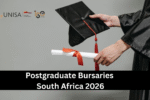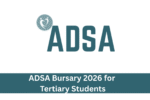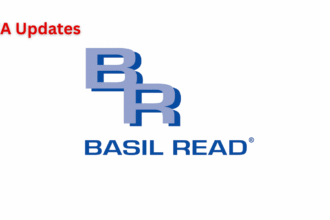A Guide To Avoiding Common Bursary Application Mistakes. Applying for a bursary in South Africa can be a life-changing opportunity for students from low-income families, but many applicants lose out because of simple yet critical mistakes. Whether you’re a high school learner preparing to apply for financial aid or a tertiary student looking for funding, it’s crucial to avoid these common bursary application mistakes that can derail your future.
In this comprehensive guide, we’ll explore the top bursary application mistakes students make, how to prevent them, and offer actionable tips to ensure your application stands out for all the right reasons.
1. Missing the Deadline
One of the most common bursary application mistakes is applying after the deadline has passed. No matter how perfect your documents are, a late application is an automatic disqualification.
Pro Tip: Set calendar reminders a week before the actual deadline. This allows time for unexpected issues like load shedding, internet problems, or last-minute emergencies. Submitting early shows that you are organized and proactive.
2. Submitting Incomplete Applications
You may spend hours filling out the form, but if you forget to include even one required document, your application could be rejected without review.
Commonly Missing Documents
| Required Document | Importance |
|---|---|
| Certified Copy of South African ID | Proves identity and citizenship |
| Parent/Guardian Income Documents | Validates financial need |
| Latest Academic Results | Demonstrates academic performance |
| Proof of Address | Confirms residency |
| Motivational Letter | Adds personal insight and intention |
Pro Tip: Create a bursary application checklist. Tick off each document as you prepare your submission. Ensure all certifications are recent (not older than 3 months).
3. Using Wrong or Outdated Information
Using an old cell number, email address, or outdated academic results may stop funders from contacting you or weaken your application.
Pro Tip: Always use your latest academic results (June/September if still in Matric) and double-check your contact information for typos.
4. Applying for the Wrong Bursary
Another common bursary application mistake is applying for a bursary that doesn’t match your qualifications or field of study. For example, applying for a mining bursary when you’re studying nursing.
Pro Tip: Carefully read the eligibility requirements. Make sure your:
- Field of study
- Academic level
- Financial situation
- Demographic (e.g., region, race, or gender-specific bursaries)
match what the bursary is looking for.
5. Writing a Weak Motivational Letter
Your motivational letter is your voice. Submitting a generic or bland letter can cost you the opportunity.
Pro Tip: Write a unique motivational letter for each bursary. Highlight your:
- Career goals
- Personal challenges
- Achievements
- Community involvement
Be honest, concise, and passionate.
6. Poor Presentation and Document Quality
Blurry scans, crumpled forms, or handwritten applications with spelling errors show a lack of professionalism.
Pro Tip: Use a scanner or high-quality phone camera to scan your documents. Save everything in a single PDF file labeled with your full name and ID number.
7. Sending Applications to the Wrong Address or Email
Surprisingly, many applications go missing because they were sent to the wrong place.
Pro Tip: Follow the submission instructions precisely. Some bursaries require:
- Email submissions
- Online portals
- Hand-delivery to offices
Double-check the email spelling or portal link before submission.
8. Ignoring the Terms and Conditions
Each bursary has specific terms and conditions some might require you to work for a sponsor for a few years after graduation, especially government bursaries.
Pro Tip: Read the fine print. If you’re not comfortable with a work-back agreement, look for bursaries without those requirements.
9. Sending Generic Applications to Every Bursary
Mass applying using copy-paste content shows no real interest. Sponsors want to know why their bursary, specifically, matters to you.
Pro Tip: Customize your application and motivational letter for each bursary. Mention the name of the organization, their values, and how they align with your career path.
10. Waiting for Matric Results Before Applying
Many students mistakenly believe they should wait for final Matric results, but by then, most bursary applications have already closed.
Pro Tip: Use your Grade 12 June or September results when applying. Most bursaries accept these provisional marks.
Bonus Tips for a Strong Bursary Application
Besides avoiding the top mistakes students make when applying for bursaries, here are additional expert recommendations:
| Bonus Tip | Why It Matters |
|---|---|
| Keep documents certified and updated | Validates legitimacy |
| Ask a teacher or mentor for review | Reduces errors and improves clarity |
| Save digital copies of applications | Helpful for reapplications or follow-ups |
| Follow up after submission | Shows initiative and interest |
| Always tell the truth | Avoids disqualification if caught |
FAQs About Avoiding common bursary application mistakes
What are the most common documents needed for a bursary application in South Africa?
Most bursaries will request a certified copy of your South African ID, your academic results, proof of income for parents or guardians, a motivational letter, and proof of residence. Always check the specific bursary requirements.
Can I apply for multiple bursaries at the same time?
Yes, you can apply for as many bursaries as you are eligible for. Just ensure you customize each application, especially your motivational letter, and follow the correct submission procedures for each one.
Is it okay to apply using my Matric results after they’re released?
You can, but many bursaries close before the final Matric results are released. Use your Grade 12 June or September marks to apply early and secure a spot.
Conclusion
Avoiding common bursary application mistakes isn’t just about ticking boxes it’s about showing that you’re a serious, responsible student worthy of investment. Even the smallest errors can mean the difference between getting funded and missing out.










